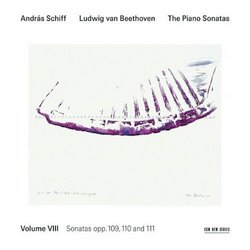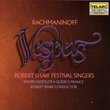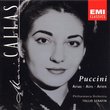| All Artists: Ludwig van Beethoven, András Schiff Title: The Piano Sonatas: Vol. VIII Members Wishing: 1 Total Copies: 0 Label: ECM Records Original Release Date: 1/1/2008 Re-Release Date: 10/7/2008 Genre: Classical Styles: Chamber Music, Forms & Genres, Sonatas, Historical Periods, Classical (c.1770-1830), Romantic (c.1820-1910) Number of Discs: 1 SwapaCD Credits: 1 UPCs: 028947661924, 028947661924 |
Search - Ludwig van Beethoven, András Schiff :: The Piano Sonatas: Vol. VIII
 | Ludwig van Beethoven, András Schiff The Piano Sonatas: Vol. VIII Genre: Classical No Description Available. Genre: Classical Music Media Format: Compact Disk Rating: Release Date: 7-OCT-2008 |
Larger Image |
CD DetailsSynopsis
Product Description No Description Available. Genre: Classical Music Media Format: Compact Disk Rating: Release Date: 7-OCT-2008 Similarly Requested CDs
|
CD ReviewsSchiff on Beethoven Music Lover | W. Europe , USA | 11/29/2008 (5 out of 5 stars) "Amazon only allows ONE review to be written on the whole of Beethoven's 32 piano sonatas (played by Schiff), which is quite impossible to do. Anyway, I'll try my best. A monumental musical extravaganza has just come to an end. The incredibly fabulous Beethoven Piano sonata cycle, presented by Andras Schiff has just been completed : 32 sonatas in eight recitals. Beethoven sonatas is one of his best repertoires. No one has come close. Most of the other composers wrote various sonatas, but they treat them like end pieces, never taken seriously as Beethoven. Bach's Well Temper may be close but it's not the same. Beethoven's entire 32 sonatas are composed like a gigantic symphony for piano with 32 movements, and the movements are coherent, from number 1 to number 32. And we have a top rate, world class pianist : Andras Schiff, who spent twenty years of his time to study these 32 pieces; distill them, and present them to us for our enjoyment. Schiff never disappointed his audiences during the two years of the recital cycles. Reviews are full of superlatives and accolades. Each recital is more exciting than the last. He is humble, meticulous, delicate and wonderful, in more ways than interpreting Beethoven. Beethoven's music is incredibly aggressive at times but also constrained, delicate but not inaudible. If you love Beethoven, you'd know what I mean. Schiff was able to present them in exactly the correct manner. I sometimes bring a score to follow them. The stresses that you hear in his music that Beethoven wants to break out of the mould makes you want to cry out loud with him. You can feel with him, his frustrations, his pain. There is only one symphony, the Choral Symphony, never been surpassed, such is the genius. One can only get this feeling when the presenter (Schiff in this case) is doing it right. He and Beethoven can make you weep, make you cry and make you shout with joy at the top of your lung. The last six sonatas are pure delight. They are not lullaby type of song, but deep genius compositions that is simply impeccable and incomparable, especially #29, the Hammerklvier, such perfection. Can't help but notice that Chopin later "borrowed" some of the phrases from Beethoven. The last three sonatas, #30, #31 and #32 and totally out of this world. Schiff put so much into these three pieces, mentally and physically, that he is so tired, he is unable to give an encore at the end of this final recital, in spite of a seven minutes of standing ovation. There is so much power, so much intricacy that it extracted everything out of him. He gave it all to the audience. Luckily, he put 98% of these excitements into his recordings as well. So listening to the CDs is like revisiting the concert. Some of the sonatas are recorded live, since most of the time Schiff performance is perfect. At the end of every recital, everyone comes out happy, dazed, amazed, satisfied and smile. Sadly, no more concert to look forward to, except to rely on my CD of the complete 32 sonatas. Fortunately, Schiff has the grace that he gave as much to these CDs as his recitals, something for me to fall back on. If you happens to like Beethoven, you will find endless joy. " Andr�s Schiff defines Beethoven's piano sonatas Scaffa | Sweden | 01/05/2009 (5 out of 5 stars) "This review refers to the eight volumes of András Schiff's cycle of Beethoven's piano sonatas released by ECM Records. The lay out of the volumes is as follows:
Vol 1: opp. 2 and 7 Vol 2: opp. 10 and 13 Vol 3: opp. 49, 14 and 22 Vol 4: opp. 26, 27 and 28 Vol 5: opp. 31 and 53 Vol 6: opp. 54, 57, 78, 79 and 81a Vol 7: opp. 90, 101 and 106 Vol 8: opp. 109, 110 and 111 All recordings except those on the last volume are of live performances (from 2004 to 2006) in the Tonhalle Zurich in front of a very quiet audience. No coughing between movements, no applause at the end, and hardly any noise at all during performances. The last volume was recorded in the empty hall of the Reitstadel in Neumarkt, Germany. The sound quality is superb throughout. The separation of the channels is done so that you have the higher notes, located on the right hand side of the keyboard, in the right channel, and the lower notes in the left channel. Personally I find this the only acceptable way of organising piano music into a stereo recording. It gives you the impression of sitting in with the pianist. Schiff's performances are of the highest order. He even manages to breathe new life into often-heard sonatas such as the Op 27-2, Moonlight. Pianists have not been able to agree on how to interpret Beethoven's instructions for the first movement of the Moonlight. Some, including Schiff, take Beethoven literally and push down the pedal for the entire movement (this and many other things is explained by Schiff in his Wigmore Hall lectures which are available for free download from the Guardian website). Gulda did the same in his 1950s cycle but not in his 1960s cycle. The result is mesmerising and beautiful. In addition, Schiff plays the Moonlight sonata at a slightly faster speed than what is commonly done, which makes for a fresh and contemporary take on this well-known piece. No single cycle will probably satisfy you completely. I find much of Barenboim's playing on his 1960s cycle very odd but his performance of the Hammerklavier would follow me to a desert island. Gulda's 1960s cycle is mostly excellent (as is the sound, but one has to accentuate 'mostly' here because there are some awkward splices) but I can't think of any better way of starting your exploration of these magnificent works than by listening to Schiff's cycle. He has a sublime touch, a masterly control over his means and an artistic sensibility that will convince you that this is how Beethoven should be played. And it's all rendered in glorious sound. Highly recommendable. " |










